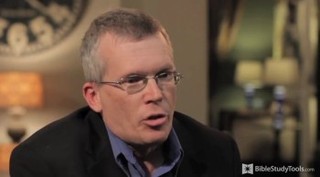
- Recent Translations
- All Translations
Genèse 15:13
Share
Settings
Genèse 15:13 Meaning and Commentary
And he said unto Abram
While he was in a deep sleep; this he said to him in a vision of prophecy:
know of a surety,
or "in knowing thou shall or mayest know" F14; and be assured of it, being now told it by the Lord himself, who foreknows all things that ever come to pass; many of which he acquaints his people with beforehand, nor would he hide from Abram his friend what should befall his posterity, as follows:
that thy seed shall be a stranger in a land [that is] not theirs;
this prophecy could not take place at this time, since Abram had then no seed; but at the birth of Isaac, in whom his seed was called, who sojourned, or was a stranger in Gerar, a part of the land of Canaan, as Jacob also in the same land, ( Genesis 36:3 ) ( 37:1 ) ; as well as he and his posterity sojourned or lived as strangers in the land of Ham, in Egypt, ( Psalms 105:23 ) ; and neither of these countries were theirs; for though there was a grant of Canaan to Abram and his seed, yet it was not in possession; though a land of promise, it was a strange land, a land of their pilgrimage, and where all the patriarchs lived in it as such, see ( Exodus 6:4 ) ( Hebrews 11:9 ) :
and shall serve them;
the inhabitants of the land not theirs, that is, the Canaanites and the Egyptians, especially the latter; and these they served after the death of Joseph, by whom their lives were made bitter with hard bondage:
and they shall afflict them four hundred years;
this term "four hundred years" is not to be joined either with the word "afflict" or "serve"; for their hard servitude and severe affliction did not last long, but a few years at most; but with the phrase, "a stranger in a land not theirs"; and the rest is to be included in a parenthesis thus, and "thy seed shall be a stranger in the land not theirs ([and] shall serve them, and they shall afflict them) four hundred years"; so long they should be strangers and sojourners, as they were partly in the land of Canaan, and partly in the land of Egypt, neither of which were in their own land, however not in possession; within which space of time they would be in a state of subjection and servitude, and be greatly afflicted and oppressed, as they were particularly by the Egyptians before their deliverance from them, see ( Exodus 1:11-22 ) ( 5:6-14 ) . These four hundred years, as before observed, are to be reckoned from the birth of Isaac to the Israelites going out of Egypt, and are counted by Jarchi thus; Isaac was sixty years of age when Jacob was born, and Jacob when he went down into Egypt was one hundred and thirty, which make one hundred and ninety; and the Israelites were in Egypt two hundred and ten years, which complete the sum of four hundred: according to Eusebius, there were four hundred and five years from the birth of Isaac to the Exodus of Israel; but the round number is only given, as is very usual; and though the sojourning of the Israelites is said to be four hundred and thirty years, ( Exodus 12:40 ) , this takes in the sojourning of Abram in that land, who entered into it sixty five years before the birth of Isaac, which added to four hundred and five, the sum total is four hundred and thirty; for Abram was seventy five years of age when he left Haran and went to Canaan, and Isaac was born when he was an hundred years old, see ( 12:4 ) ( 21:5 ) .
F14 (edt edy) "cognoscendo cognosces", Pagninus, Montanus; so Schmidt.
Genèse 15:13 In-Context
Videos for Genèse 15:13
